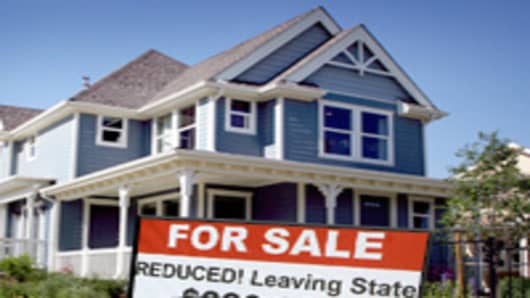Foreclosures are leading to home-buying deals — half off the appraised value — as the federal government sells houses it has repossessed.
For people who work in a select range of occupations, the Federal Housing Administration sells houses at half price under its Good Neighbor Next Door program, or GNND. These homes were insured by the FHA and foreclosed on. Now, the Department of Housing and Urban Development is selling them.
Good Neighbor Next Door is for buyers who are teachers, law enforcement officers, firefighters and emergency medical technicians, or EMTs. Buyers who don't belong to those professions can't participate in the program.
That's not the only hurdle. For firefighters or EMTs to qualify, they have to serve the jurisdiction where the house is located. For teachers, the house must fall within the neighborhood boundary of the school where the teacher works.
Buyers who meet the professional requirements must be willing to live in the neighborhood. Good Neighbor Next Door homes are in what the FHA calls "revitalization areas." These are neighborhoods with some combination of low household incomes, low homeownership rate and high number of foreclosures of FHA-insured properties.
By definition, a revitalization area isn't vital anymore; it needs fixing up. The goal of Good Neighbor Next Door is "to strengthen communities by encouraging employed, professional law enforcement officers, teachers and firefighters/emergency medical technicians to live in the community," according to the Department of Housing and Urban Development.
How it works
After meeting all of those requirements, the buyer pays half the appraised value as determined by HUD. Buyers may pay cash, or borrow some or virtually all of their one-half of the purchase price. In some cases, buyers can get FHA-insured renovation mortgages, called 203(k) loans.
The discounted half is taken as a "silent second" mortgage, with no principal or interest payments. If the buyer lives in the house continuously as a primary residence for three years, the silent second mortgage is forgiven. The owner may then keep the house or sell it and retain any profit.


